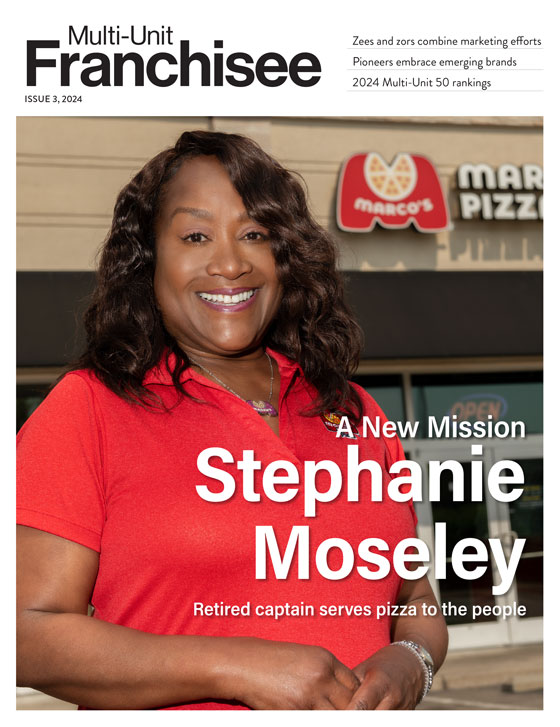Social Media and Your Portfolio: Is it a match made in heaven or a toxic brew?

A study of institutional investors conducted by Greenwich Associates in 2015 found that more than three-quarters of the managers of the world’s largest asset pools (e.g., pensions, endowments, sovereign wealth funds) regularly used social media as part of their normal workflow processes. This may seem surprising, given the ever-evolving nature of the media and the notion that “everything changes all the time.” Yet many in the survey pointed to the importance of the medium as a way to generate ideas worthy of further research or to keep a finger on the pulse of public opinion and emerging trends.
Does social media have a place in helping us shape and manage our personal portfolios? Maybe. Maybe not. The answer lies more in how you are personally wired and how you deploy social media. There are many solid commentators on social media, the Internet, and podcasts who can bring us a deeper education on a broad variety of topics: economics, specific asset class insights, the workings of the Federal Reserve, politics, entrepreneurship, financial planning, taxes, and more. For us lifelong learners, the array can be so overwhelming as to become all-consuming with rabbit holes aplenty! Taken as one set of inputs in a sturdy and thoughtful portfolio construction process, social media platforms and other internet sites may have a place.
On the other hand, there are plenty of ways to be led astray by incorrect information or inputs meant to inflame our emotions rather than feed the rational parts of our brains. One only has to look as far as the meme stock craze, which has reemerged as an example of the former. Putting on a trade because someone else did (especially if the whole reason it was placed was based on “sticking it” to someone else) is hardly a viable long-term investment strategy. At its core, investing wisely for the long term is about leveraging the benefits of compounding—not buying a lottery ticket or winning at the blackjack table. It is also important to remember that everyone’s situation is unique, and what works for your best friend, your sister-in-law, or your work bestie may not have any place in your own financial affairs.
“The first rule of social media is that everything changes all the time. What won’t change is the community’s desire to network.”
—Kami Huyse, public relations and social media strategist, entrepreneur, and CEO of Zoetica.
Ideas to consider
If you plan to use social media and other sources for investment research, keep these ideas in mind:
- Research the background, experience, training, and credentials of the person giving the advice.
- Find out if they are being paid to offer their opinions/expertise. If so, by whom?
- Are you prone to emotional responses to triggers? If so, limit the time spent or access to sites and information flows that demand, command, incite, or encourage action. Lawsuits were brought against early trading apps for gamification (throwing confetti) every time a trade was placed. The algorithms in your feed are trained on your activity—what you like, what you click through, read comments on, or even hover over.
- There are plenty of reputable free sources for basic information, which are great places to start learning basic economic information. One example is the U.S. Federal Reserve System. The Fed and the regional Feds conduct extensive research and publish extensively on a vast array of topics important to all-size businesses.
- Make sure to write your investment goals down before looking for ideas or suggestions more broadly. Growing your personal net worth, similar to growing your business, takes time, diligence, sound and experienced advice, patience, and potentially some trial and error.
While social media influencers can provide investors with interesting ideas, staying true to your long-term plan and well-diversified portfolio, rather than reacting to the latest investing trends on social media, is typically a better approach for investors.
Carol Schleif is chief investment officer at BMO Family Office. “BMO Family Office” and “BMO Wealth Management” are brand names used by BMO Bank N.A., BMO Family Office, LLC, and certain affiliates providing investment, investment advisory, trust, banking, and securities products and services. These entities are all affiliates and owned by BMO Financial Corp., a wholly-owned subsidiary of the Bank of Montreal (BMO). Investment products are not FDIC insured, not bank guaranteed, not a deposit, and may lose value. To learn more, visit www.bmofamilyoffice.com. Views and opinions expressed are Schleif’s and do not necessarily reflect the views and opinions of BMO.
Share this Feature
Recommended Reading:
FRANCHISE TOPICS
- Multi-Unit Franchising
- Get Started in Franchising
- Franchise Growth
- Franchise Operations
- Open New Units
- Franchise Leadership
- Franchise Marketing
- Technology
- Franchise Law
- Franchise Awards
- Franchise Rankings
- Franchise Trends
- Franchise Development
- Featured Franchise Stories
FEATURED IN

Multi-Unit Franchisee Magazine: Issue 3, 2024

$350,000





 The multi-unit franchise opportunities listed above are not related to or endorsed by Multi-Unit Franchisee or Franchise Update Media Group. We are not engaged in, supporting, or endorsing any specific franchise, business opportunity, company or individual. No statement in this site is to be construed as a recommendation. We encourage prospective franchise buyers to perform extensive due diligence when considering a franchise opportunity.
The multi-unit franchise opportunities listed above are not related to or endorsed by Multi-Unit Franchisee or Franchise Update Media Group. We are not engaged in, supporting, or endorsing any specific franchise, business opportunity, company or individual. No statement in this site is to be construed as a recommendation. We encourage prospective franchise buyers to perform extensive due diligence when considering a franchise opportunity.